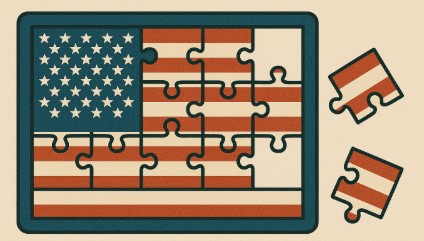Artificial Intelligence is revolutionizing the market research industry—boosting speed, automating repetitive tasks, and enabling deep data analysis like never before. Yet, as AI reshapes our tools and methodologies, it also increases the demand for human leadership. In this evolving landscape, the most successful consultants aren’t just tech-savvy—they are powerful communicators, strategic thinkers, and empathetic collaborators.
At Fieldable Research, we believe that strong leadership in market research isn’t about resisting AI—it’s about guiding it with purpose.
- Strategic Thinking in the Age of Automation
AI can analyze patterns, but it can’t define purpose.
Consultants with strong leadership skills can:
- Connect insights to business strategy
- Prioritize what matters in a sea of data
- Decide when to trust automation— and when human judgment should take precedence
Resources to develop strategic thinking:
- Harvard Business Review’s Strategy Section: Regular insights and case studies on decision-making and strategic frameworks
- Coursera’s “Business Strategy” by the University of Virginia: A foundational course on aligning research with business value
- Books like “Good Strategy Bad Strategy” by Richard Rumelt: A classic on the principles of effective strategic thinking
- Communication That Translates Complexity
In today’s data-saturated environment, the ability to transform complexity into clarity is more valuable than ever.
Great market research leaders:
- Communicate with clients in clear, engaging, human-centered language
- Build trust by transparently explaining what AI can—and can’t—do
- Empower stakeholders to take confident, informed action
How to grow this skill:
- “Data Storytelling” by Brent Dykes: A book that bridges analytics and narrative
- Toastmasters International: A global community for practicing public speaking and communication
- LinkedIn Learning’s “Communication Foundations”: A practical course on business communication essentials
-
Emotional Intelligence and Team Empowerment
AI can simulate inteactions, but it can’t replace empathy or cultural sensitivity. Consultants who lead with emotional intelligence:
- Build stronger rapport with participants
- Create inclusive research environments
- Inspire teams through curiosity and collaboration
Where to build emotional intelligence:
– Tell Me More About That: Solving the Empathy Crisis One Conversation at a Time- Rob Volpe
- Daniel Goleman’s Emotional Intelligence Framework (explored in his book and website)
- Yale University’s “The Science of Well-Being” (Coursera): Offers insights into self-awareness and empathy
- Coaching certifications or workshops (e.g., ICF-accredited programs) for team development and leadership coaching
- Curiosity and Continuous Learning
The most impactful leaders are lifelong learners. In a fast-moving AI landscape, staying still means falling behind..
In the AI era, we must:
- Stay updated on new tools and ethical implications
- Experiment, adapt, and evolve methodologies continuously
- Cultivate a mindset of “always asking why” to drive meaningful insights
Suggested learning platforms:
- MIT OpenCourseWare – Artificial Intelligence and Ethics: For understanding AI beyond the tools
- Reforge and General Assembly: For evolving skills in product thinking and digital innovation
- Podcasts like “The AI Alignment Podcast” or “Data Skeptic”: To stay updated and inspired on the go
Final Thought
As AI takes on more tasks, he need for uniquely human leadership grows stronger. The most effective consultants are those who bring direction, depth, and purpose to data. They guide technology, not the other way around.
At Fieldable Research, we embrace the future of market research by combining state-of-the-art tools with timeless human skills. Because without leadership, even the most advanced technology is just noise.
Ready to lead with us? Contact Fieldable Research today






